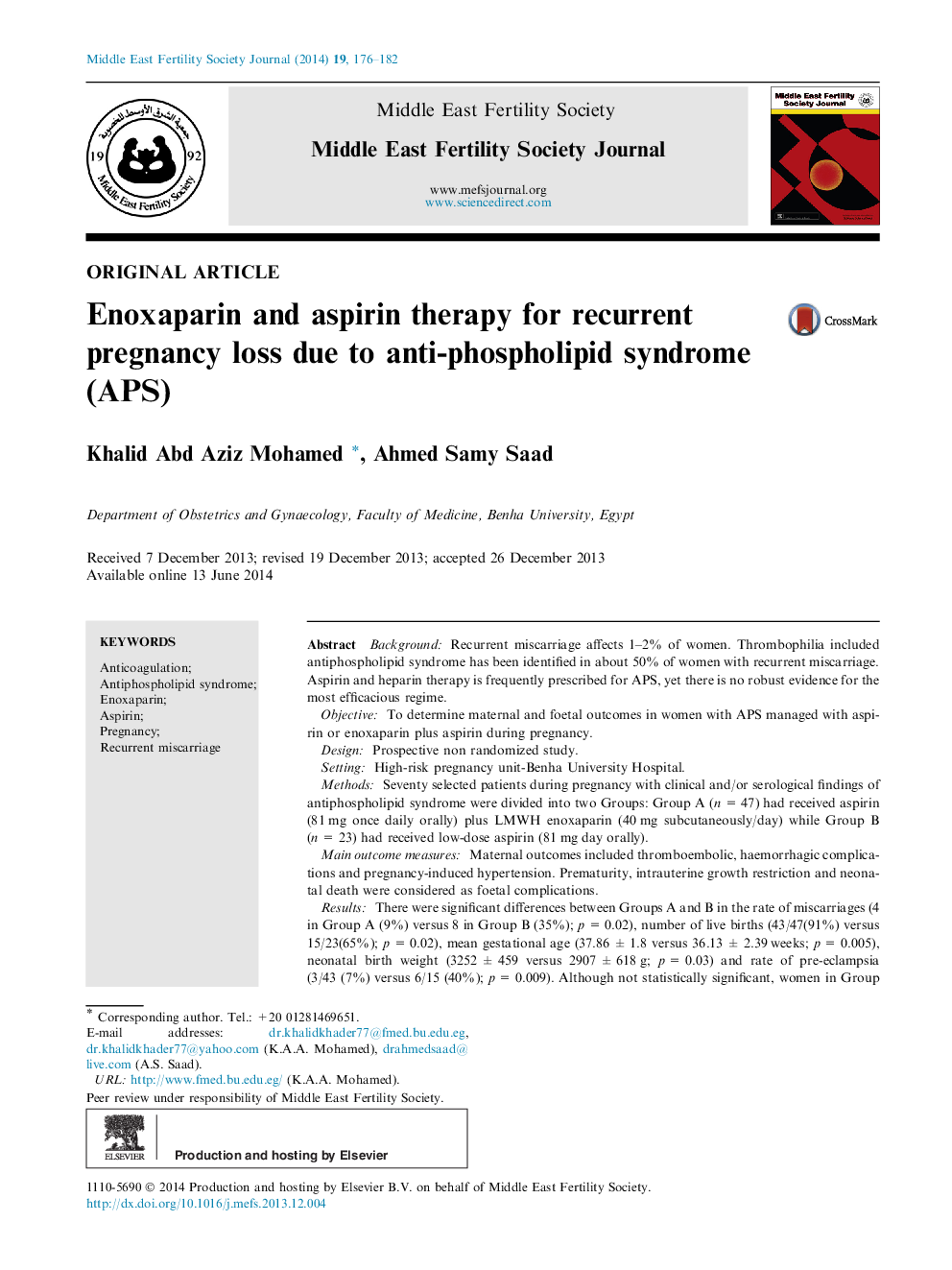| کد مقاله | کد نشریه | سال انتشار | مقاله انگلیسی | نسخه تمام متن |
|---|---|---|---|---|
| 3966141 | 1256140 | 2014 | 7 صفحه PDF | دانلود رایگان |

BackgroundRecurrent miscarriage affects 1–2% of women. Thrombophilia included antiphospholipid syndrome has been identified in about 50% of women with recurrent miscarriage. Aspirin and heparin therapy is frequently prescribed for APS, yet there is no robust evidence for the most efficacious regime.ObjectiveTo determine maternal and foetal outcomes in women with APS managed with aspirin or enoxaparin plus aspirin during pregnancy.DesignProspective non randomized study.SettingHigh-risk pregnancy unit-Benha University Hospital.MethodsSeventy selected patients during pregnancy with clinical and/or serological findings of antiphospholipid syndrome were divided into two Groups: Group A (n = 47) had received aspirin (81 mg once daily orally) plus LMWH enoxaparin (40 mg subcutaneously/day) while Group B (n = 23) had received low-dose aspirin (81 mg day orally).Main outcome measuresMaternal outcomes included thromboembolic, haemorrhagic complications and pregnancy-induced hypertension. Prematurity, intrauterine growth restriction and neonatal death were considered as foetal complications.ResultsThere were significant differences between Groups A and B in the rate of miscarriages (4 in Group A (9%) versus 8 in Group B (35%); p = 0.02), number of live births (43/47(91%) versus 15/23(65%); p = 0.02), mean gestational age (37.86 ± 1.8 versus 36.13 ± 2.39 weeks; p = 0.005), neonatal birth weight (3252 ± 459 versus 2907 ± 618 g; p = 0.03) and rate of pre-eclampsia (3/43 (7%) versus 6/15 (40%); p = 0.009). Although not statistically significant, women in Group A tended to have lower rates of preterm births (6/43 (14%) versus 3/15 (20%); p = 0.89) and IUGR (5/43 (12%) versus 5/15 (33%); p = 0.13) than in Group B.ConclusionsUse of low dose aspirin and enoxaparin 40 mg subcutaneously daily in patients with RPL due to antiphospholipid syndrome resulted in higher live birth rates compared to low dose aspirin alone. Solid conclusions from this study are limited due to the small number of patients, non-randomization of groups and discrepancy in number between groups because the choice of the interventional drug was left to patient’s preference after counselling. A larger RCT is needed.
Journal: Middle East Fertility Society Journal - Volume 19, Issue 3, September 2014, Pages 176–182